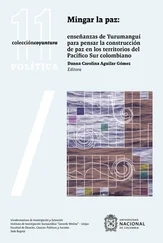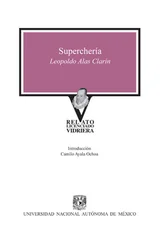Don Ecuménico, that incredible bug, paused theatrically. He’d cackled these last words in a tone that rang pitifully false, redolent of who knows what rancid literatures; and yet his words resonated with poetry and humour as well. Then he continued:
— It was some demon that led me by the hand to the House of Books, no doubt about it. A venerable old Buenos Aires mansion with an oil-painted facade and barred windows, it looked the most innocent place in the world. As the Librarian Who Peered Out from Hazy Distances later told me, the philanthropic founder of that species of institute had gathered there tome upon tome, in the grip of a strange compulsion — perhaps the passion of a genius or a miser who mindlessly amasses his treasure; or perhaps simply the collectionist mania of the empty man who mechanically fills the hours of his day. The bust of the Founder, moreover, graced the hall of the library; and I can assure you neither his marble features nor his hollow eyes nor his clothing, which the sculptor had respected right down to the tie pin, allowed me to discern whether the man had been an intellectual or an idiot.
”The first reading room was devoted to children, and was usually populated by a legion of restless brats fidgeting among their childish papers under the bovine gaze of a woman security guard whose neckless head appeared to be screwed directly into a torso exuberant in its haunches and udders. The second room was spacious, with ceiling-high stacks, comfortable reading tables, and ancient woodcuts on the walls; there I met the Librarian Who Peered Out from Hazy Distances; and there, in a clear well-lit space, I first tested my mettle as a reader, not suspecting the future disaster in store for me as a result of this innocent exercise. Let me clarify that Room Number Two specialized in literary works — novels, plays, and poetry lined its shelves. And I began to devour everything, my soul wading in up to its knees in those fictitious worlds. But, gentlemen, I had previously renounced the deceitful parade of images, passions, and sentiments that constitute a human existence — and what did literature do, if not multiply those images, stylize the passions, and fictionally prolong the colourful lie of worldly things? Yes, yes! What my being longed for was to live within a hermetic cube, amid figures and solids invented by geometry, and to surrender myself to abstract ideas, where not even the ghost of a rose might intrude! I had a fight pending with the Eternal, and I could only fight it on enemy territory, which is to say, on the wide, glacial, silent plains of the Abstract. That was when, without intending to, I began to look at the little padded door .
”It was a neatly quilted little door; an insignificant little door off in one corner of the second room; an almost invisible little door, like the ones concealed in catacombs, pyramids, and secret alchemical fortresses. It was quite plausible that behind the little door lay only a poky little storage room filled with brooms, feather dusters, and the like. But if that was the case, why the severe padding on the little door? For an entire week I obsessed over this mystery. Finally, I resolved to sound out the Librarian Who Peered Out from Hazy Distances. The Librarian was a man of indeterminate age with no discernible tendencies, a strictly neutral man about whom nothing could be affirmed or denied. He was enveloped in the deep but calming silence of plants; he expressed no emotion, ever. His cold, moist eyes seemed to slide over things, alas, smoothly, without penetrating them, the way a stream slips over pebbles. Was he dull-witted, or was some secret concealed within the reserve of that obscure man? When I gently broached the subject of the little door, the Librarian, as I recall, remained stubbornly mute. But hadn’t two strange glints flashed in his eyes? Be that as it may, he turned on his heels without a word and returned to his metal filing cabinets. The next day I again asked about the door, and again the man listened to me with vegetable indifference. But this time something began to slacken inside him, something like a strict resolve that has not quite decided to relax. At last, as distant as ever, he proffered these four words: What do you seek? He uttered them with a sort of tired, rusty voice, as though for all eternity he’d had no other mission than to ask of men: What do you seek? Then, in a fit of trustingness, I told him all. And the Librarian Who Peered Out from Hazy Distances listened for a long while, as coldly as a pair of scales that receives and registers weights. He didn’t encourage me to tell my tale; neither did he approve or disapprove of its terms. When I finished, he made no comment at all, turned his back on me, and went back to his olive-green filing cabinets. But the following day, that fateful man, that inscrutable man, that absurd man opened the little padded door for me; and he did so as mechanically as a guard, without breaking his silence, not a single line of his face stirring.
”Behind the little door loomed a foggy space lit by a kind of glass skylight whose near opacity might have been due to the caretakers’ negligence or just to the ineluctable grime that time continuously deposits on things destined to die. But once accustomed to the ghostly light, I observed not neglect but a state of almost exaggerated order reigning in Room Number Three. Against the walls rose the imposing architecture of three full bookcases. Opposite the skylight was a desk of carved wood, furnished with a lectern, an ancient friar’s chair, and a green lamp. The floor was covered by a large carpet, which swallowed the sound of footsteps and seemed to admonish one to use stealth. Neither paintings nor prints distracted one’s eyes; on the contrary, the furniture, books, rug, even the sky-blue damask covering the walls had lost their original colours and faded to a single tone, indefinite, shabby, dead. Such was Room Number Three, the room hidden behind the little door, the laboratory of a risible transformation, of an evil without glory, of the obscure metamorphosis you behold in me now. But what abomination lurked in that room?
”In Room Number Three, the Founder had collected thick, stiff-spined volumes with yellowed pages: books containing all the illuminations of the soul, all the mad flights of the intellect, all the prudent discourses of reason and the blasphemous audacities come up with by mortal man in his attempts to plumb the Absolute. Well then, gentlemen, I was seeking the Absolute, whether on the wings of love or of rancour, I wasn’t too sure; and I threw myself into reading those books with a voracity that grew keener every time I found an image of what I felt or an answer to my old inner questions. And, sure enough, it was a well-laid road to perdition.
”Before telling you what happened in Room Number Three, I must explain something about the insurance broker called Don Ecuménico, still subsisting within me. At first, my incursions into the Mansion of Books took place in the afternoon and evening. In the mornings, I’d take a run through the oyster beds of my clientele, then rush to the office, deposit the fruits of my labour, and make myself scarce until the next morning. Even though my new work habits weren’t exactly orthodox, I was still good enough at my job that the company didn’t get alarmed; I brought in the normal amount of business, and nobody asked what Don Ecuménico was up to when he was off work. But things changed after the revelation of the little door and what lay behind its precious quilting. I would read till nightfall, at which point the Librarian would drive me out. Then I’d eat something at my rooming house; meals took place amid phantom faces, with me chewing away on Doña Consuelo’s stews along with the latest problem I’d brought from Room Number Three. After supper, I went straight to bed, and the problem bedded down with me, getting into my dreams, keeping me awake, gnawing at my grey matter, and finally releasing me at the threshold of the new day. Exhausted in body and soul, I went back to my morning rounds; but an unspeakable force dragged me against my will back to the Mansion of Books, a force I struggled with for a long time before it finally overcame me. At first I gave in once a week, then twice, finally three times. At the Insurance Company, astonishment and consternation reigned. They began by gently admonishing me, then came the bitter tirades, and then a shameful dismissal that left me jobless and without benefits. Fortunately, I had my savings and lived a very frugal life. I decided then to steer clear of all occupations except the one that took me, morning and afternoon, to Room Number Three. For my bliss was now summed up in the following luxuries: to sense, with a shiver of pleasure, the little door closing discreetly behind me; to feel how my soul opened its petals to the unreal luminosity coming from the skylight; to breathe in the odour of bindings, ancient papers, and disinfectants against gnawing insects; to place a book on the lectern and then wrestle with the Divinity, in a struggle of unequal arms but inebriating in that very disparity.
Читать дальше












